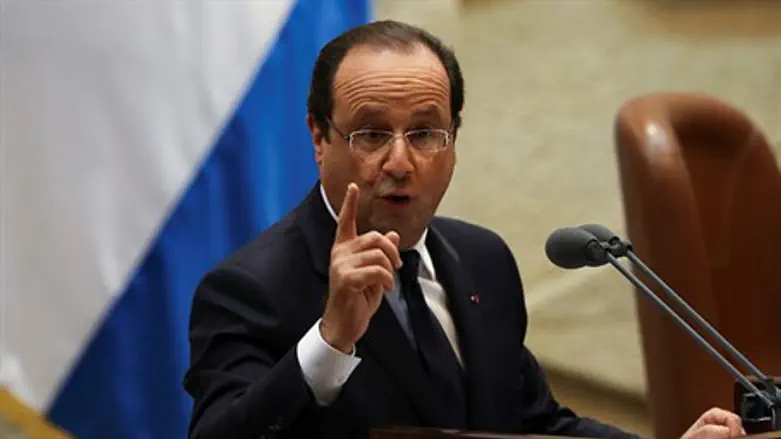
French President Francois Hollande and his prime minister Manuel Valls have made a powerful pair in responding to the past week's attacks - a far cry from the grinding unpopularity in which they are normally stuck.
A new poll found that 80 percent of the nation believes they have dealt well with the jihadist shootings in Paris that left 17 dead - the sort of approval rating that was the stuff of dreams for France's top two leaders just days ago.
Hollande put in a powerfully emotional performance at a Tuesday ceremony granting the Legion d'honneur - France's top distinction - to three police officers killed in the attacks.
Valls followed up with a red-blooded tirade in parliament later that evening that took parliament by storm.
The normally reserved National Assembly rarely sees such displays, but the Spanish-born premier managed to rouse the lawmakers into several standing ovations after a rousing rendition of La Marseillaise anthem - the first since the end of the First World War. In his speech, Valls called for an end to anti-Semitism and for a crackdown on terrorism, saying France was at war with "jihadism and radical Islam."
Le Figaro, the centre-right daily which rarely has anything nice to say about the Socialist government, was in gushing form on Wednesday, saying Hollande had "found the right words" for the occasion while Valls gave "a speech that makes people like politics".
And even rebel ruling party lawmakers were in a generous mood. Cecile Duflot, who stormed out of government last year in opposition to its perceived rightward turn, praised the leaders' "dignity, solemnity and firm handling" of the situation.
Division of roles
Just over a week ago Hollande was the least popular president in modern French history.
He had made repeated attempts to rebuild his reputation, left in tatters by a stagnant economy and embarrassing revelations he cheated on his partner, but his television and radio appearances mostly fell flat.
That changed this week, when his man-of-the-people image - which famously saw him branded "Mr Normal" during the 2012 election campaign - proved perfect for responding to the nation's trauma in the wake of the jihadist attacks on the Charlie Hebdo magazine, police and a Jewish supermarket.
That was the polar opposite to Valls.
"The division of roles was striking," said Gael Sliman of media analyst firm Odoxa.
Hollande was the "father of the nation, the unifier. He struck a posture of empathy," Sliman said.
That left Valls to emphasise "firm resolve and authority", which he honed in his former role as interior minister.
Whether they can keep the momentum going remains to be seen. They have played on the themes of secularism, freedom of expression and tough new measures to combat terrorism.
But, says Stephane Rozes, president of the CAP think tank, they are still missing a convincing response to the long-term decline of the country and Europe, "defining a united future vision for France".
The attacks "triggered a kind of electroshock, a national jumpstart ... but we also have to treat the causes of the depression."
